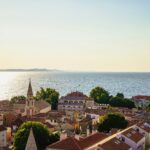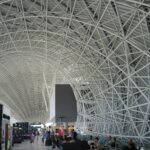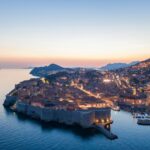A significant day for Croatian politics?
Croatian politicians will be very busy on Monday. First, at 9 pm the President will begin the second round of consultations on the formation of a parliamentary majority, while at noon the Esplanade Hotel in Zagreb will host a joint meeting by leaders of MOST, HDZ and SDP, Božo Petrov, Tomislav Karamarko and Zoran Milanović. That meeting will be followed by their separate meetings with the President, reports Novi List, Vecernji List and Jutarnji List on December 7, 2015.
However, given the political positions of all parties involved in the negotiations, it is difficult to expect that president Kolinda Grabar-Kitarović will be able to announce in the afternoon that someone has been named prime-minister designate, since that would require a support of at least 76 members of parliament.
“We are calm, very calm”, said yesterday one of the leading representatives of SDP’s Croatia Is Growing coalition. They estimate that, after an unsuccessful first sitting of the new Parliament, they are closer to their ultimate goal than their opponents from HDZ. It is also significant that Milanović, as opposed to Karamarko, did not consider it necessary to talk to Petrov in private before today’s meeting in Zagreb. For Karamarko, a cause for concern could be the fact that more and more newspaper commentators which usually support him have begun calling on him to give the post of prime minister to MOST.
However, MOST have so far given no indication that 15 of their members of parliament may soon opt for a coalition with only one side. Anyway, the meeting will certainly not last very long, since MOST representatives have to be at the Presidential Office at 2 pm for their meeting with the President. Most has announced that it would continue to insist on a reform government with SDP and HDZ, which Milanović and Karamarko resolutely refuse. Therefore, it is very unlikely to assume that the two would accept for the prime minister in such a government to come from MOST. Both parties feel that this is blackmail and that they are the ones who, given the number of seats in parliament won, have a right to nominate the prime minister. And more importantly, neither of them are not at all prepared for a grand coalition, which is a prerequisite for any further steps and arrangements.
“That is impossible. MOST simply has to choose a side. If that is unacceptable to them, they should say it immediately and then we will have new elections which nobody needs”, a high-ranking SDP representative said. The idea of a grand coalition has been publicly rejected by Željko Jovanović, SDP’s member of parliament. “The grand coalition with HDZ is not possible. But, in the future, for example in four year’s time, when HDZ becomes a normal right-wing party, then why not?!” Jovanović said.
In any case, the most likely scenario is that today’s meeting will not change anything, so the second round of consultations with the President will be identical to the first, and that no one will receive the mandate to form a government. As far as is publicly known, Zoran Milanović still has 66 signatures of support, while Tomislav Karamarko has 59 signatures, but that could all change. “Although we prefer SDP-led Croatia is Growing coalition, we do not exclude the possibility that, for stability of the country, we could support a possible centre-right government, if we find common language and agree about what is important to us”, Milorad Pupovac, president of Serbian minority party SDSS, said yesterday.
According to the latest poll conducted for RTL Television by Promocija Plus, 23.7 percent of citizens believe that HDZ and MOST will form the next government. About 22.6 percent believe that the government will be formed by SDP and a part of MOST. As much as 16.8 percent of voters believe that the government will not be formed at all, while about 4 percent of the population believes in a reform government of all three main parties, the idea which is advocated by MOST. Just half a percent of voters believe that HDZ and SDP will be able to sit down and form a government without MOST.
When it comes to who should lead the next coalition government, the situation is quite different: almost a third of respondents (31.4 percent) believe that the next Prime Minister should be the current PM Zoran Milanović. A quarter of respondents believe that it should be Božo Petrov (24.5 percent), while Tomislav Karamarko, who claims to be the relative winner of the elections, has a support of 11 percent of respondents.







